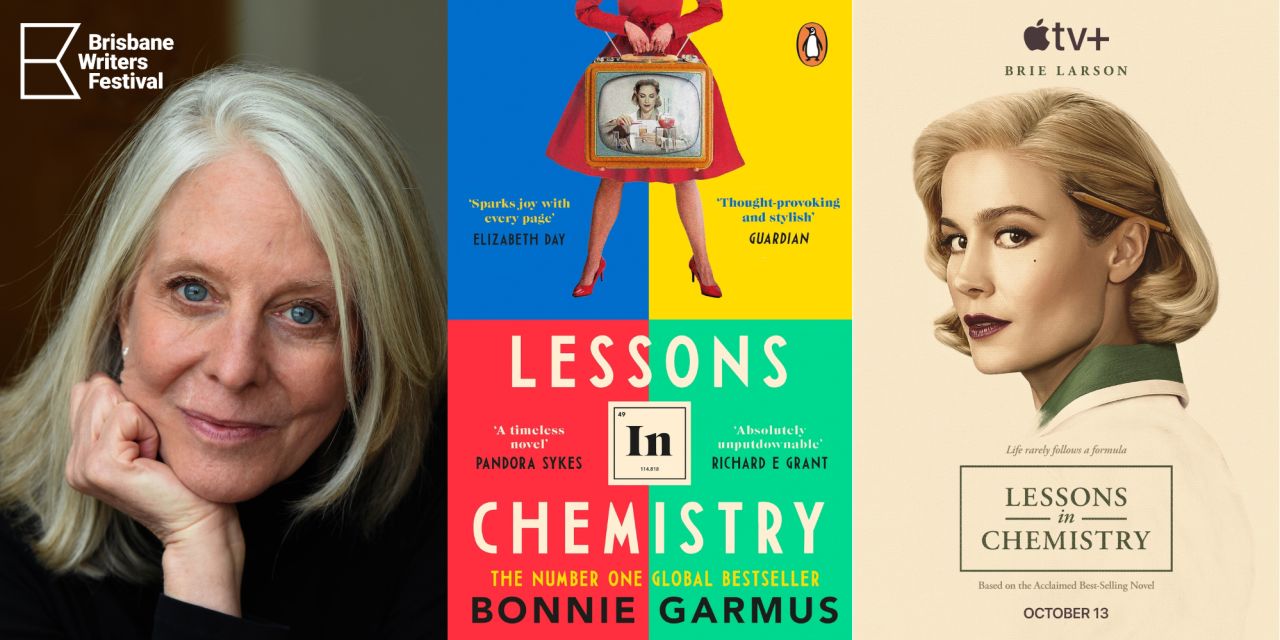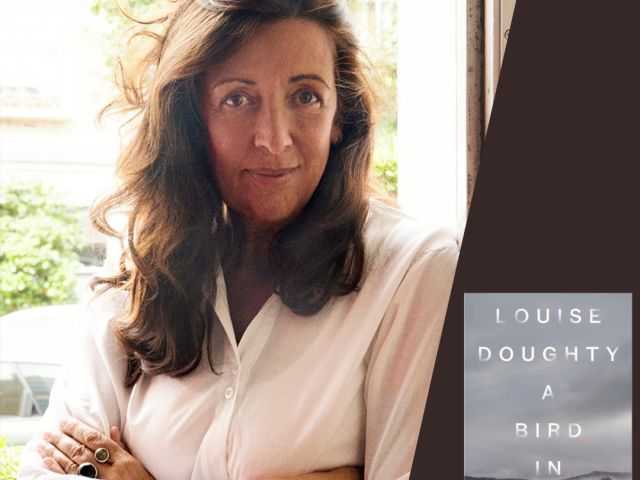Comparing Screen and Page: Lessons in Chemistry
By Josephine Renee
Bonnie Garmus will be speaking in sold out events on 23 & 24 May 2024. Read to see Youth Ambassador Josephine Renee's thoughts on the page to screen adaptation.
Bonnie Garmus’s debut novel about a 1960s woman in science has been translated into 42 languages and has sold over six million copies.
Some background on the author: Garmus was signed by her literary agent on an incomplete manuscript with Lessons in Chemistry being published as her debut novel in 2022. It went to auction, which is where two or more publishers like a book so much they are willing to adjust their contracts to compete for it. In the end, 16 publishers competed for the rights to Lessons in Chemistry with Garmus eventually landing a six-figure deal. As if I wasn't jealous enough, a year before publication they announced the TV series adaptation by Apple TV.
With less than a year between the paperback being available in Australia and the TV adaptation, let’s get into how they compare.
Firstly, the main characters’ dog, Six-Thirty, isn’t named after the time Zott and Calvin met him. It’s the time he wakes her up in the morning which has zero relevance. I understand the decision within the retelling to make Six-Thirty Zott’s dog, giving her something to enter Calvin’s world and home with. However, the dog is so integral to the story because it shows how Zott and Calvin would have raised a child together. Calvin shows this in the TV show by looking after Harriet’s kids, but it’s not quite the same as it’s not a shared caretaking role with Zott.
In the book, Calvin is naïve to women’s struggles and perspectives although willing to listen and change. This is shown well in the TV show however there is an added forgetfulness. Watching him forget TV Harriet's court case was heartbreaking.
The foreshadowing in the TV show is cruel. Calvin has a near miss when a car rushes past and then Harriet shouts at her kid to ‘watch for cars’. I knew it was coming, but even my brother and father sensed it when the camera followed that vehicle for a few seconds too long. The vehicle changed from a police car and I wonder if it was for the shock value of all audience members, especially those waiting on the police car, so you still flinch and cry out that, it’s not right, it’s not fair, it can’t happen like this, which is exactly how I felt when I read it for the first time in the book. In this sense, I think the TV show did it best.
The main difference is Harriet Sloane. In the TV show, she is a black single mother raising two kids, whereas in the book she has four kids who are grown and an abusive husband. I cried when Book Harriet found Zott on the floor listening to her baby daughter's screams but was too exhausted to move. Book Harriet comes in and offers those moments of help, changing the diaper of ‘the writhing infant like a cowboy roping a calf’. That feeling of being utterly overwhelmed is portrayed so well, and to have Book Harriet offer so much support when Zott is completely alone—you can’t help but tear up.
Book Harriet is my favourite; she was very much a side character and had the time to devote herself to taking care of Mads and looking after Zott too, being more of a small close-knit family rather than the big neighbourly community of the TV show. TV Harriet competes as a central character in her own right, she commands and deserves it.
Book Harriet embodies the things Zott was avoiding and holds a distorted future image of what could have been. Whereas TV Harriet is a mirror to reflect that Zott’s troubles are nothing in comparison to those of black women of this time. This begs the question as to why we are following Zott’s story rather than TV Harriets, as usually you follow the character with the greatest obstacles. This is answered in the end as TV Harriet’s ending is not a triumphant one. It’s a professional tragedy that isn’t resolved. Her husband is absent for most of the story to pursue his career without supporting hers. He does not decide it’s his turn to look after their kids but instead supports her by turning up to things. It doesn’t say what becomes of Harriet's future or the highway except that it will be built and ends almost immediately after this with a big happy family scene, celebrating Zott’s success in gaining a long-lost wealthy relative willing to fund her career, which seems even more unfair to TV Harriet's struggles. Even though one message of the book is to accept help when it’s offered.
The biggest tragedy, however, when translating the book to script might be Fran Frask. The first noticeable difference in the TV show is the compulsory beauty pageant. This dives brilliantly into the concept of it being even more difficult for beautiful women to be taken seriously, especially as the Fran Frask of the novel is later fired for gaining weight, which never happens in the TV show. Neither does her jealousy of Zott turn into true respect. Also, what on Earth was that thing with the frogs? Injecting a pregnant woman's pee into them to prompt ovulation. While it is interesting to note, and a real method used at the time when pregnancy tests weren’t readily available, it’s hard to overlook the animal cruelty. In the book, Fran sees her vomiting and implies Calvin left her something. This is a far more normal way to go about things while adding tension to the situation as she’s fired when their bosses find out. There is another powerful bathroom moment the TV show excludes where Fran and Zott reveal they were both assaulted by their thesis advisors and so never graduated.
The TV show is like viewing an alternate reality. I’m thankful for its differences as it explored even more of the 1960s and these characters. Being a woman born in the 2000s it’s so easy to forget what it used to be like, how lucky we are.
A summer away from graduating and any sense of style has been abandoned for flip-flops, singlets, and shorts. My friend turned around in her lecture hall seat and asked if I thought she would make a great ancient Greek philosopher if she could time travel. She would have I thought, except for one thing… ‘You’re a woman,’ I reminded her. We exhaled a kind of laugh that was cut short by trying to weigh sadness and fortitude together. So thankful to be sitting in a place where women never used to be welcomed or protected. But discouraged knowing that building a time machine wasn’t our greatest obstacle when considering travel to the past.
#About Josephine
Josephine Renee is one of BWF's 2024 Youth Ambassadors. She is studying creative writing at QUT and volunteered with BWF in 2022 and 2023. She has travelled Europe for two years, spent a year and a half in North America, and recently returned from Paris. When not gaining world-building inspiration, she dedicates her time to writing and illustrating.
#Events on sale now!
Bonnie Garmus's events on 23 & 24 May have sold out, but there's plenty more on our festival program to catch your eye. Check out these two events below, or click the button to explore the full festival program.





